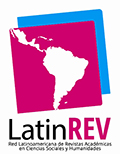The cases on IVF before the Inter-American Court of Human Rights: An analysis of its substantive arguments and possible consequences
Abstract
In Artavia Murillo et al. v. Costa Rica (“in vitro fertilization” case), the Inter–American Court of Human Rights struck down the Costa Rican ban on artificial reproduction and ordered public funding of in vitro fertilization through its Social Security system. It held, among others, that the human embryo is not a person, that conception occurs at implanta- tion in the maternal womb, not fertilization and that article 4(1) of the American Convention on Human Rights allows ample exceptions to the unborn’s right to life, including at least some forms of abortion.
This article refutes the Court’s conclusions in Artavia and critiques the judgment’s interpretation of article 4(1) of the American Convention on the right to life from conception as well as its creation of supposed international obligations to legalize and facilitate artificial reproduction. It also describes the recent controversy on the execution of the judgment in domestic jurisdiction, which is specially relevant now due to the fact that, four years after the judgment, both Costa Rican legislators and Costa Rica Supreme Court have yet to authorize IVF in their country and face a second lawsuit before the Inter–American Court.








_(1)_.png)

_(2).png)

